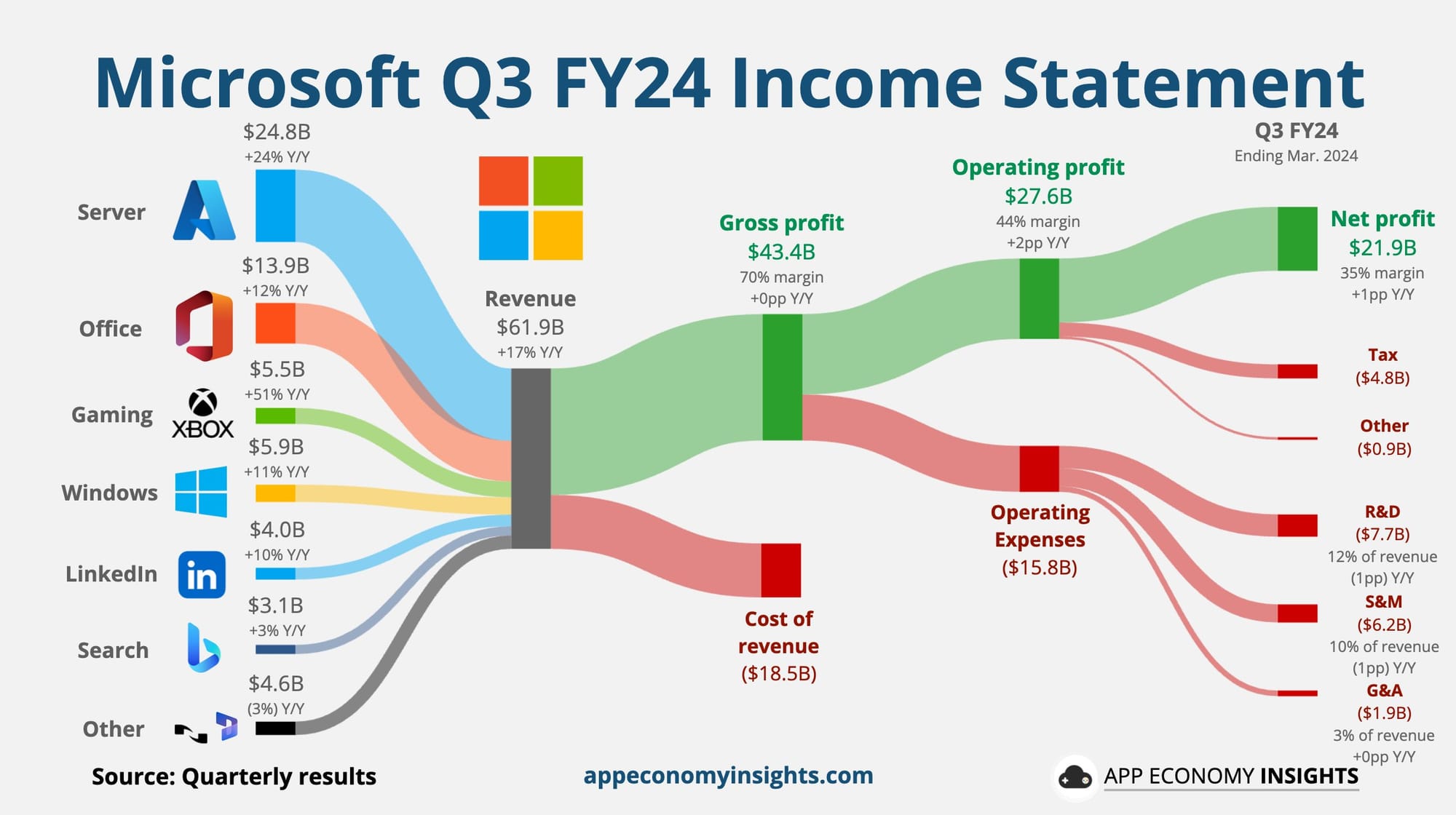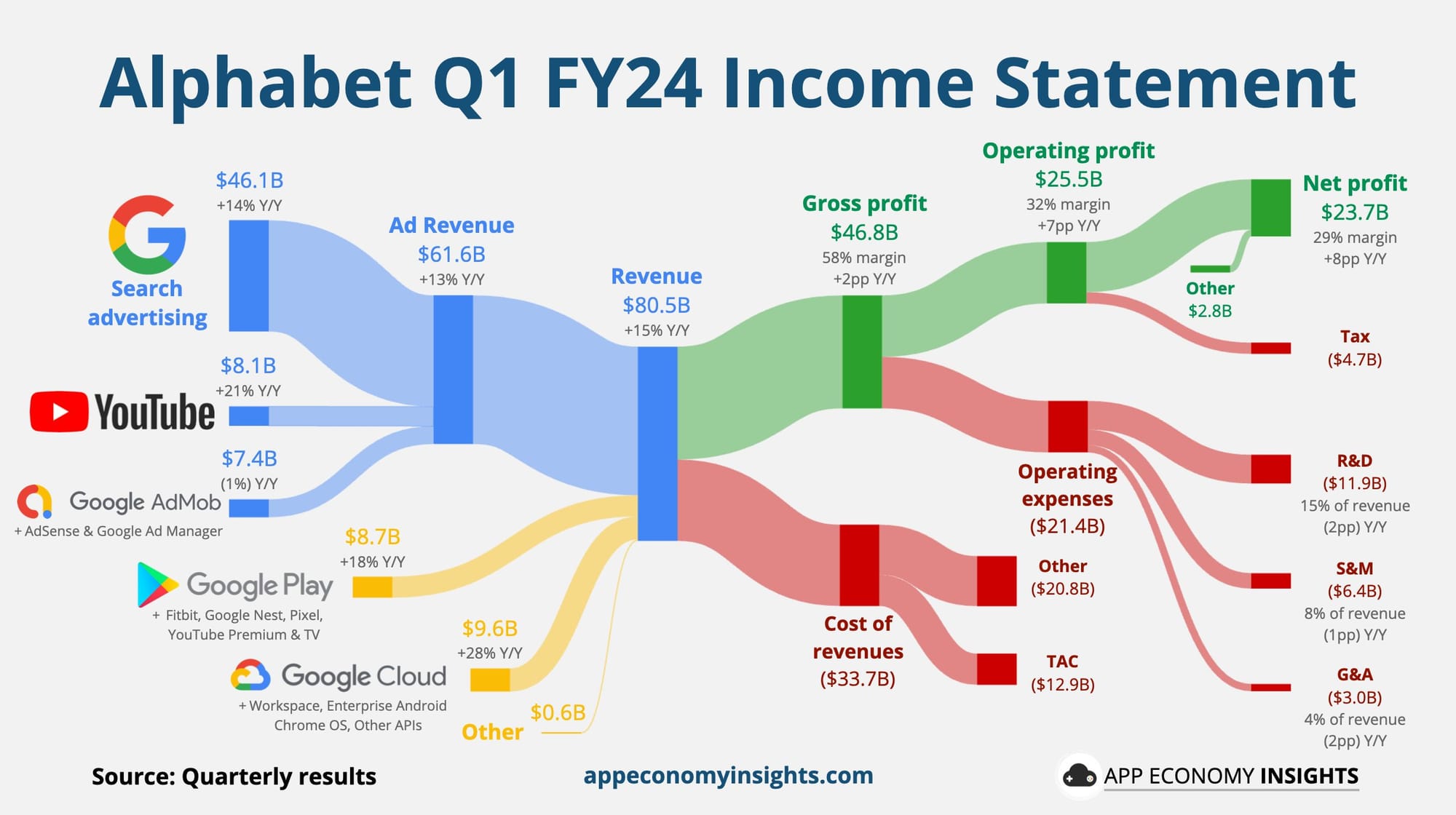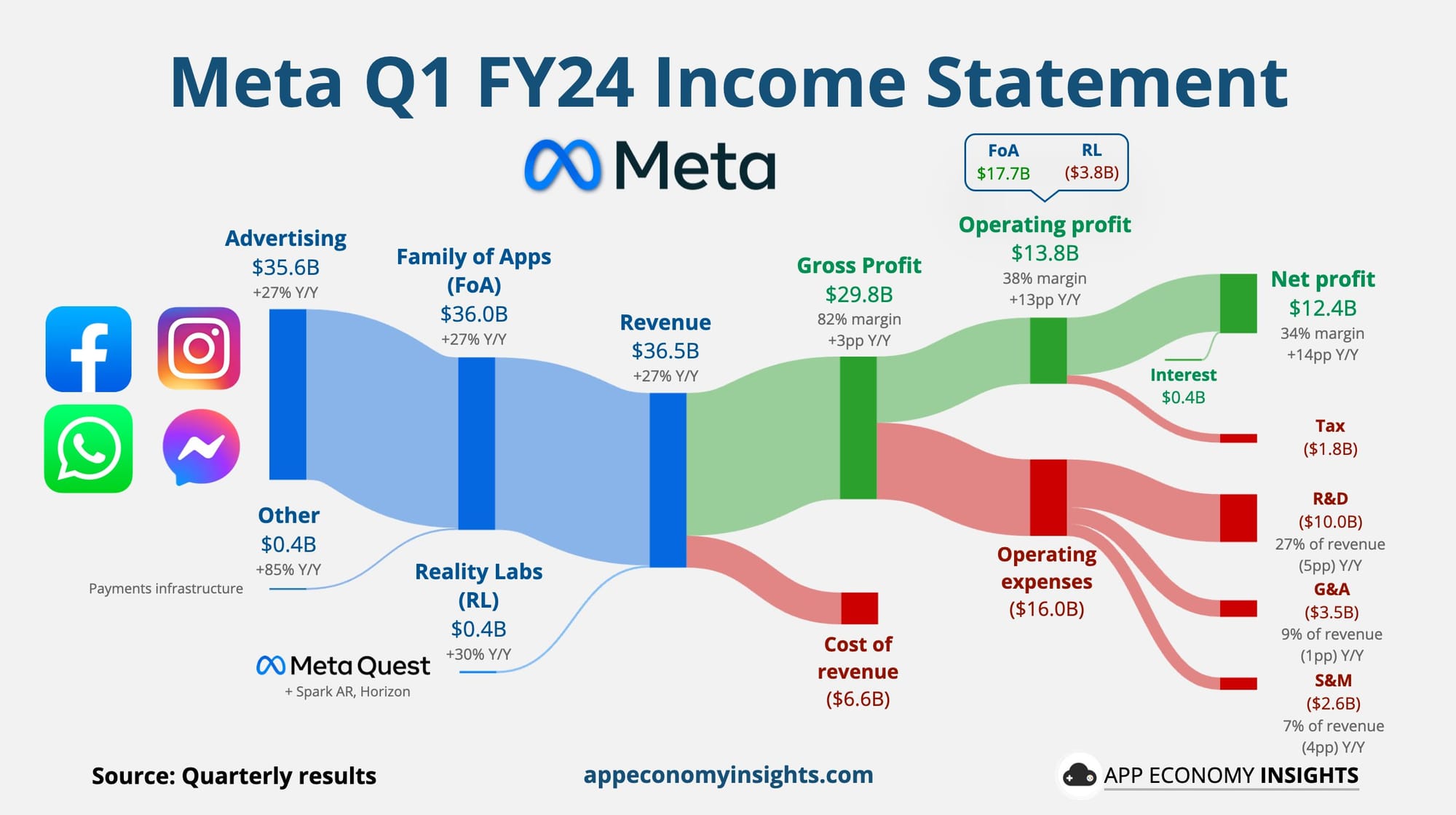
Microsoft and Alphabet, two tech giants at the forefront of the artificial intelligence race, have reported strong Q1 earnings, driven largely by the growing demand for AI-powered services. The companies' financial results stand in stark contrast to those of Meta, which has been focusing on open-source AI and has warned investors of the need for significant long-term investments in the technology.
Microsoft's revenue rose 17% year-over-year to $61.9 billion, surpassing analysts' estimates, while its net income increased by 20% to $21.9 billion. The company's success can be attributed to its close partnership with OpenAI, the creator of ChatGPT, and the integration of AI into its products, such as the Copilot assistants in Microsoft 365. Microsoft's Azure cloud services also saw a 31% growth, with AI services contributing 7 percentage points to this increase.
Microsoft's Earnings Summary:

- AI was mentioned over 50 times during Microsoft's earnings call, underscoring its importance to the company's strategy.
- Microsoft's revenue from Azure and other cloud services grew by 31%, with 7 percentage points of that growth attributed to AI services. This is up from 6 percentage points in the previous quarter.
- The company's Intelligent Cloud segment, which includes Azure, Windows Server, Nuance, and GitHub, saw a revenue increase of about 21%.
- Microsoft's Copilot AI assistant, integrated into its office tools and web browsers, is now available to small businesses with Microsoft 365 subscriptions. This marks the first full quarter of Copilot sales.
- Bing, Microsoft's search engine, has seen increased downloads and usage since the integration of AI features. Bing now has over 100 million daily users.
- Microsoft's overall revenue grew by 17%, and net income rose by 20%.
Similarly, Alphabet reported impressive results, with profits soaring 57% to $23.7 billion compared to the same period last year. CEO Sundar Pichai highlighted the contributions of Google Cloud, which now offers generative AI services through its Gemini model. Alphabet's CFO, Ruth Porat, noted that the company's cloud segment generated $9.6 billion in revenue, with AI playing an increasing role in this growth.
Alphabet's Earnings Summary:

- Alphabet's revenue grew by 15%, the fastest rate since early 2022, with a 20% jump in operating income.
- The company's CEO, Sundar Pichai, emphasized AI during the earnings call, detailing six main areas where Alphabet is enhancing its AI capabilities.
- AI innovations in search were highlighted, with Pichai noting that AI has increased user engagement and satisfaction.
- Alphabet's cloud business, Google Cloud, saw revenue jump by 28% to $9.57 billion, and operating income more than quadrupled to $900 million.
- The company's YouTube and cloud businesses are on track to reach a $100 billion run rate by the end of the year.
- Alphabet's overall revenue exceeded $80 billion, up 15% from the same quarter last year.
Investors reacted positively to the earnings reports, with Microsoft's shares rising 3.84% and Alphabet's stock surging 11.5% in premarket trading. The strong performance of these companies demonstrates the potential for AI to generate significant returns in the near term.
In contrast, Meta's recent earnings report and cautionary statements about the long-term nature of its AI investments led to a more than 10% drop in its stock price. CEO Mark Zuckerberg defended the company's strategy, acknowledging that it may take years for its AI products to scale and generate revenue. Despite this, Meta has shown resilience in recovering from the pandemic-driven ad slowdown and remains up 26% year-to-date.
Meta's Earnings Summary:

- Meta's revenue surpassed analyst expectations, with a first-quarter revenue of $28.1 billion (up 3% year-over-year). However, net income was down 24% year-over-year.
- About 30% of posts on Facebook feeds are delivered by Meta's AI recommendation system, and more than 50% of content on Instagram is now AI-recommended.
- Meta's guidance for increased capital expenditures of $35-40 billion was driven by investments in AI infrastructure.
- The company's AI investments and spending plans led to a negative reaction from investors, with the stock falling sharply after the earnings report.
- Meta's advertising business remains strong, with ad pricing up 6% year-over-year, and continued growth from ad-buyers in the Asia-Pacific region.
Takeaway
Microsoft and Alphabet have leveraged their existing infrastructure and model-as-a-service offerings to quickly monetize their AI investments. Both companies have integrated AI into their cloud services, with Microsoft's Azure and Alphabet's Google Cloud experiencing significant revenue growth. Microsoft's partnership with OpenAI has been a key advantage, allowing it to offer exclusive access to large language models like GPT-4. Additionally, Microsoft's installed base for its AI offerings extends beyond its direct Azure customers, further broadening its reach.
In contrast, Meta's focus on open-source AI and its heavy investments in AI research and development have yet to translate into tangible business value. Meta's AI-powered ad sales have shown promise, but the company's overall advertising business faces challenges due to increased competition and regulatory concerns. Meta's investments in AI are long-term plays, and the company acknowledges that it may take years to fully scale and monetize its AI initiatives. This strategy has caused skepticism among investors, who are concerned about the lack of short-term returns.

